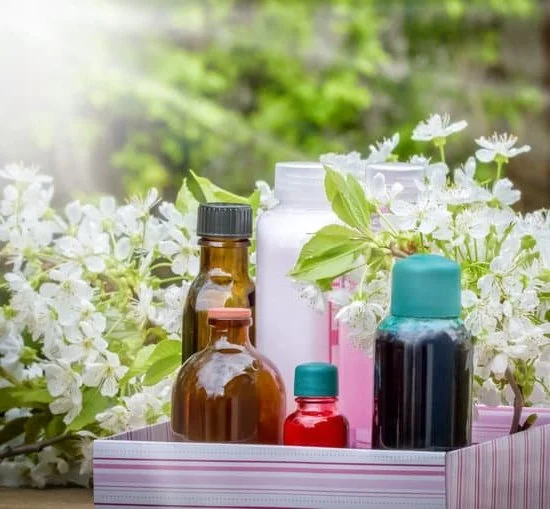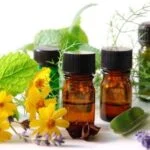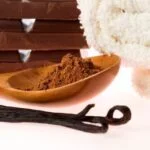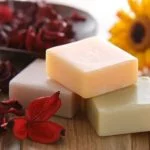Depression is a common mental health disorder that affects millions of people worldwide. It can have a significant impact on a person’s daily life, making it difficult to function and enjoy the things they once loved. In this section, we will explore the symptoms, causes, and impact of depression on daily life, shedding light on the complexities of this condition.
Understanding the signs and symptoms of depression is crucial in recognizing and addressing the condition. From persistent feelings of sadness and hopelessness to changes in appetite and sleep patterns, depression can manifest in various ways. Additionally, we will delve into the underlying causes of depression, which may include genetic, biological, environmental, and psychological factors.
Affecting individuals of all ages, races, and backgrounds, depression can disrupt personal relationships, work productivity, and overall quality of life. By understanding the far-reaching impact of this mental health disorder, we gain insight into the urgency of finding effective treatment options. And this leads us to our central question: does aromatherapy help depression? Let’s now explore how aromatherapy with essential oils might offer relief for those experiencing depression.
What Is Aromatherapy
Aromatherapy is a holistic healing treatment that uses natural plant extracts to promote health and well-being. It is often used in combination with other complementary therapies such as massage, meditation, and yoga. The aromatic compounds from many different plants are known as essential oils, which can be found in various parts of the plant such as the flowers, leaves, or roots. These essential oils can then be inhaled or absorbed through the skin to provide numerous therapeutic benefits.
The use of aromatherapy for depression has gained popularity in recent years due to its potential to alleviate symptoms and improve mood. Essential oils have been found to have a direct impact on the parts of the brain that control stress, anxiety, and depression.
For example, lavender essential oil is known for its calming effects and has been shown to reduce anxiety and improve sleep quality. Similarly, bergamot essential oil has been linked to reducing stress levels and uplifting the mood.
According to a study published in the journal Complementary Therapies in Clinical Practice, aromatherapy massage using an essential oil blend significantly improved both depression and anxiety levels in hospice patients. Another study from the National Library of Medicine reported that inhaling clary sage essential oil reduced cortisol levels by 36% and improved thyroid hormone levels in women with depression. These findings highlight the potential of aromatherapy as a complementary approach for managing depression symptoms.
| Essential Oil | Therapeutic Benefits |
|---|---|
| Lavender | Calming effects, reduces anxiety and improves sleep quality |
| Bergamot | Reduces stress levels and uplifts mood |
| Clary Sage | Reduces cortisol levels and improves thyroid hormone levels |
The Science Behind Aromatherapy
The use of aromatherapy for treating depression and improving mood has gained popularity in recent years. But how does aromatherapy help depression? It all comes down to the science behind it.
Aromatherapy works by stimulating the smell receptors in the nose, which then send messages through the nervous system to the limbic system – the part of the brain that controls emotions. This stimulation can lead to the release of neurotransmitters like serotonin and dopamine, which are known to have mood-boosting effects.
In addition to its effects on neurotransmitters, aromatherapy also has an impact on the hormonal system. Certain essential oils used in aromatherapy have been shown to reduce levels of cortisol – the stress hormone – in the body. By lowering cortisol levels, aromatherapy can help alleviate feelings of anxiety and improve overall mood.
Furthermore, research has shown that some essential oils used in aromatherapy have anti-inflammatory and antioxidant properties. Inflammation and oxidative stress have been linked to mental health disorders, including depression. Therefore, reducing inflammation and oxidative stress through aromatherapy may contribute to an improvement in depressive symptoms.
| Benefit | Effect |
|---|---|
| Mood Enhancement | Stimulates neurotransmitters like serotonin and dopamine |
| Reduced Stress Hormones | Lowers cortisol levels, decreasing feelings of anxiety |
| Inflammation Reduction | Anti-inflammatory and antioxidant properties may help alleviate depressive symptoms |
Research Studies
Aromatherapy has been gaining attention as a potential complementary therapy for managing depression. Many individuals have turned to essential oils as a natural way to alleviate symptoms of depression and improve their overall well-being. But does aromatherapy help depression? In this section, we will delve into the research studies that have explored the effectiveness of aromatherapy for depression.
Here are some key findings from scientific studies on the use of aromatherapy for depression:
- A study published in the Journal of Clinical Psychiatry found that inhaling the aroma of lavender essential oil significantly reduced symptoms of depression and anxiety in participants.
- Another research published in Complementary Therapies in Medicine showed that Bergamot essential oil exhibited stress-reducing and mood-improving effects, making it a potential option for managing depressive symptoms.
- The Journal of Alternative and Complementary Medicine published a study indicating that the use of Ylang Ylang essential oil led to significant improvements in mood and feelings of self-worth among individuals with mild to moderate depression.
These studies suggest that there is promising evidence supporting the use of aromatherapy as a complementary approach for managing depression. However, further research is still needed to fully understand the mechanisms behind how essential oils affect mood and mental health.
It is important to note that while these studies provide valuable insights, individual experiences with aromatherapy may vary. It’s always advisable to consult with a healthcare professional before incorporating aromatherapy into your treatment plan for depression.
Best Essential Oils for Depression
When it comes to using aromatherapy for depression, certain essential oils have been found to have mood-boosting properties that can help alleviate symptoms of sadness and low mood. These essential oils can be used in a variety of ways, such as through inhalation, topical application, or even ingestion in some cases. Here are some of the best essential oils for depression:
- Lavender: Known for its calming and relaxing properties, lavender essential oil can help reduce feelings of anxiety and promote a sense of peace and well-being.
- Bergamot: This citrusy oil has been shown to have uplifting effects on mood and may help ease feelings of stress and tension.
- Ylang Ylang: With its sweet and floral aroma, ylang ylang essential oil is often used to promote relaxation and reduce feelings of sadness.
In addition to these essential oils, other popular choices for managing depression include clary sage, chamomile, and rosemary. It’s important to note that individual responses to specific essential oils can vary, so it may be necessary to experiment with different options to find the most effective ones for personal use.
When using essential oils for depression, it’s crucial to do so in a safe and responsible manner. Always dilute essential oils properly before applying them to the skin, and never ingest them without consulting a qualified healthcare professional. Inhaling essential oils through diffusers or inhalers is generally considered safe, but it’s always best to seek advice from a trained aromatherapist or healthcare provider if you have any concerns about using aromatherapy for depression.
How to Use Aromatherapy for Depression
Diffusion
One of the most popular ways to use essential oils for depression is through diffusion. This involves dispersing the oil particles into the air, allowing them to be inhaled and absorbed by the body.
A few drops of your chosen essential oil can be added to a diffuser, which will then release the aroma throughout your home or workspace. This method not only fills the air with a pleasant scent but also allows for easy inhalation of the therapeutic properties of the oil.
Topical Application
Another way to use aromatherapy for depression is through topical application. Essential oils can be diluted with a carrier oil, such as coconut or jojoba oil, and applied directly to the skin. The wrists, temples, and neck are common areas for application, as these allow for easy absorption into the body. Massaging the diluted essential oil onto the skin not only provides a pleasant sensory experience but also aids in promoting relaxation and mood enhancement.
Bathing
Taking a relaxing bath infused with essential oils is another effective method of using aromatherapy for depression. Adding a few drops of essential oil to bath water can create an indulgent and soothing experience. The warm water helps to open up pores, allowing for better absorption of the essential oils into the body. This method not only uplifts mood but also provides overall relaxation and stress relief.
By incorporating these simple tips into your daily routine, you can easily harness the benefits of aromatherapy for managing symptoms of depression. Whether it’s through diffusion, topical application, or bathing, integrating essential oils into your everyday life may offer some relief from depressive symptoms.
Personal Stories
Turning to Aromatherapy as a Natural Solution
For many individuals struggling with depression, seeking relief through conventional medication and therapy may not always provide the desired results. This has led some individuals to explore alternative methods for managing their symptoms, one of which includes aromatherapy. Many people have turned to aromatherapy as a natural solution to alleviate the effects of depression and improve their overall well-being.
Positive Experiences With Aromatherapy
There are numerous personal stories of individuals finding relief from depression through the use of aromatherapy. From diffusing essential oils at home to using them in massage or bath treatments, many have reported feeling uplifted and experiencing improved moods after incorporating aromatherapy into their daily routines. Some individuals have even noted a reduction in feelings of anxiety and stress, leading to an overall improvement in their mental health.
A Holistic Approach to Mental Health
Those who have found success with aromatherapy often appreciate its holistic approach to mental health. By addressing the emotional and psychological aspects of depression, aromatherapy offers a complementary method for managing symptoms alongside traditional treatments. These personal stories serve as powerful testimonials to the potential benefits that aromatherapy < does aromatherapy help depression > can offer for those seeking relief from depression and related mood disorders.
Conclusion and Recommendations
In conclusion, while there is no definitive answer to the question “Does aromatherapy help depression“, the evidence suggests that it may offer some relief for individuals struggling with this condition. Understanding depression as a complex mental health issue that impacts every aspect of a person’s life is crucial. Aromatherapy, which involves using essential oils to promote physical and psychological well-being, has been shown to have a positive impact on mood and emotional health.
The science behind aromatherapy reveals that certain essential oils can have an impact on the brain and mood, offering potential benefits for individuals experiencing depression. Research studies have provided valuable insights into the effectiveness of aromatherapy for depression, with some indicating that specific essential oils can aid in mood-boosting and overall well-being.
For those considering using aromatherapy for depression, it is important to note that not all essential oils are created equal, and some may be more effective than others. The best essential oils for depression include lavender, bergamot, chamomile, and rose.
These oils have been found to have mood-enhancing properties and can be used in a variety of ways to promote relaxation and emotional balance. With proper guidance from healthcare professionals and the right approach in incorporating aromatherapy into one’s daily routine, individuals struggling with depression may find some relief through this natural and holistic practice.
Frequently Asked Questions
What Helps People Cope With Depression?
Coping with depression can involve a combination of therapy, medication, and self-care. Engaging in activities that bring joy, connecting with supportive people, and practicing mindfulness can all help manage symptoms.
How Can Aromatherapy Help With Mental Health?
Aromatherapy can help improve mental health by using essential oils to promote relaxation, reduce stress, and uplift mood. Scents like lavender, chamomile, and bergamot are commonly used to support emotional well-being.
What Is the Most Natural Antidepressant?
Exercise is often considered the most natural antidepressant because it releases endorphins that act as the body’s natural painkillers and mood elevators. Regular physical activity has been shown to decrease symptoms of depression and anxiety.

Are you looking for a natural way to improve your health and wellbeing?
If so, aromatherapy may be the answer for you.






